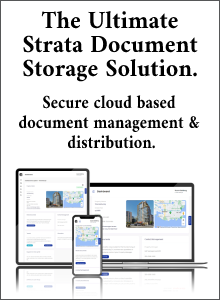
What are Strata Minutes and Why are They Important?
Ever wonder what goes on in those strata council meetings? Strata minutes are a record of the official business of the strata corporation – they record decisions that were made, who made them, and when they were made. They also identify what type of meeting took place, how votes were executed, and any specific directions that were given. In this blog post, we’ll explore why strata minutes are so important and how they can benefit you as a strata owner or council member.
The Importance of Strata Minutes
Strata minutes are an important part of the official record of the business of the strata corporation. They provide a transparent way for owners and councils to keep track of decisions that were made, who made them, and when they were made. This level of transparency is important in order to maintain trust between owners and councils, and to ensure that all decisions are made in accordance with the Strata Property Act.
Strata minutes allows all interested parties to see how a strata corporation functions. This is beneficial for several reasons:
- They allow current owners to see how their strata has been run in the past and get a feel for how effective or ineffective past councils have been.
- They allow owners to see if there have been any serious concerns or issues within their building in years past that they were not aware of.
- They allow potential purchasers to make an informed decision about whether or not they want to buy into a particular strata corporation.
- They provide evidence of what was said and decided at a meeting, in case there is ever any dispute about what took place.
Another important function of strata minutes is that they identify what type of meeting took place and how votes were executed. This is useful information for owners and councils to have as it helps to ensure that all decisions are being made in accordance with the Strata Property Act. It also helps to prevent disputes between owners and councils down the line.
Finally, strata minutes often contain specific directions that were given by the council during the meeting. This is important information for members of the strata council to have as it ensures that they are following the correct procedures when making decisions on behalf of the strata corporation.
Conclusion:
Strata minutes are an important part of the official record of the business of the strata corporation. They provide a transparent way for owners and councils to keep track of decisions that were made, who made them, when they were made, and what type of meeting took place. They also help to prevent disputes between owners and councils by clearly outlining the procedures that should be followed when making decisions on behalf of the strata corporation. If you’re ever curious about what goes on in those strata council meetings, be sure to ask for a copy of the minutes!
Not Legal Advice - The material provided on the StrataPress website is for general information purposes only. It is not intended to provide legal advice or opinions of any kind and may not be used for professional or commercial purposes. No one should act, or refrain from acting, based solely upon the materials provided on this website, any hypertext links or other general information without first seeking appropriate legal or other professional advice. These materials may have no evidentiary value and should be checked against official sources before they are used for professional or commercial purposes. Your use of these materials is at your own risk.



